‘End fossil fuels use’: Chris Bowen digs in over climate warming
In a surprise statement Chris Bowen vowed to back the COP president to keep 1.5 degrees global warming target as the ‘North Star’.
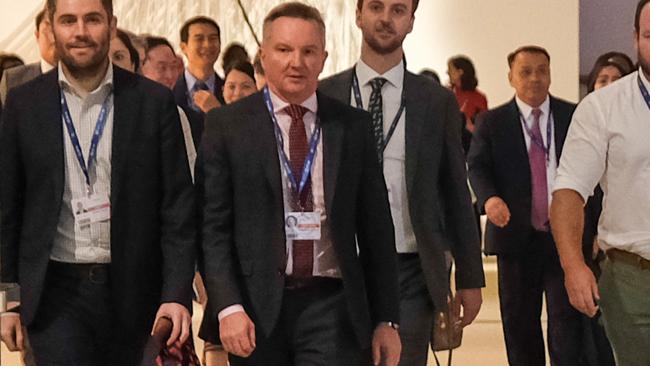
Australia’s climate change minister Chris Bowen has agreed Australia will end the use of unabated fossil fuels as well as make an indeterminate financial contribution to help other countries achieve their 1.5 degree global warming targets.
Early this morning Mr Bowen told nearly 200 countries attending the COP28 in Dubai: “We don’t need to phase out fossil fuel emissions, we need to end the use of fossil fuels”.
In the surprise statement Mr Bowen that he “wasn’t going to see our Pacific brothers and sisters inundated and their countries swallowed by the seas”, vowing to back the COP president “with every ounce of energy we have’’ to keep 1.5 degrees as the “North Star”.
He informed the COP 28 president Sultan al-Jaber, who is struggling to get countries to agree on a consensus around fossil fuels, that Australia would agree to a COP28 text which provided for the abatement of fossil fuels.
Mr Jaber had told politicians to rise above self-interest and to start thinking of the common good.
When Mr Bowen took to the floor he emphasised his point about fossil fuels three times. He said: “Fossils fuels don’t have a future in our energy system” and “fossil fuels has no ongoing role to play in our energy systems”.
Abatements are considered highly controversial by many nations, and the burying of carbon in the ground in carbon capture and storage projects is largely untested. Abatements can also include carbon credits and other environmentally sustainable projects like the planting of trees. The percentages of any abatement would also be expected to be highly controversial.
However it is highly uncertain that OPEC countries will agree to any COP28 text calling for the end of fossil fuels, or the end of subsidisation of fossil fuels, which could emasculate Mr Bowen’s offer.
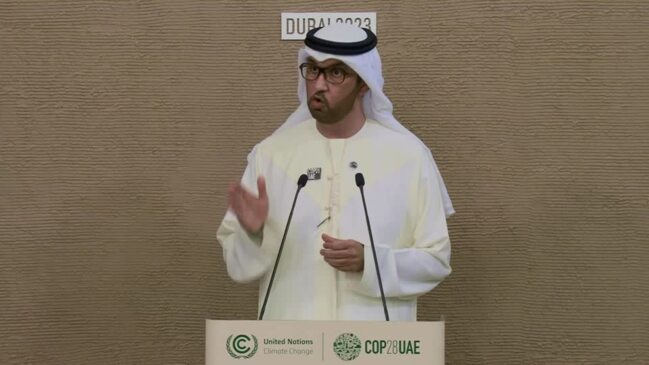
Former Ireland president Mary Robinson, the chair of campaign group The Elders said: “The nations thwarting progress are those with the greatest stakes in fossil fuels but also the most plentiful resources to act. Saudi Arabia and allies are holding talks hostage. However it is not the only country hindering progress: the USA, China, the EU and India have been happy to hide in the shadows cast.”
Wopke Hoekstra, the EU commissioner for climate action, called on OPEC nations to join the “super majority of nations” pushing for “more ambition” about fossil fuels.
Opposition climate spokesman Ted O’Brien said Mr Bowen must explain Labor’s desire to end the use of fossil fuels.
“What is the plan, how much will it cost and who is paying?,’’ Mr O’Brien said in an interview with The Australian.
“Unless Mr Bowen can explain his plan to replace oil which constitutes over 30 per cent of our primary energy use, then what on earth is he doing? If Labor plans to stop Australians from manufacturing fertilisers, petrochemicals, steel and cement, it must come clean and tell the workers when their jobs end, and consumers how much prices are going to rise.’’
Mr O’Brien was shocked that Labor’s renewables-only strategy, which had been firmed up by gas was now highly uncertain after Mr Bowen’s statements.
“Mr Bowen needs to explain how this is in our national interest, how it will impact Australia’s energy security and our economy’’.
Mr Bowen had insisted to the COP that his caveat over the end of fossil fuels of using abatements “was not an excuse for delay or inaction”.
Mr Bowen said: “There are many ways to reflect that fossils fuels don’t have a future in our energy system and we will be flexible with you to find a pathway to give you the chance you need to consign that into history. Abatement is a word that gets thrown around but we need to be clear, we want to reduce fossil fuel use and abatement is the backstop for those areas, like the goalkeeper which we need on the field. It is not an excuse or a delay, it is not a reason for inaction, it is a path of the overall solution, we have to make that very clear.”
Up until now Australia’s position on whether to support any of the non-oil countries pushing for a phasing out of fossil fuels without any abatements, as argued by the European Commission, was unclear.

Mr Bowen also surprised other countries by also referring to next year’s climate financing discussions, which could have been a sweetener for Australia’s bid to host the COP31 in 2026.
Mr Bowen said at the financing discussions Australia “expects it will provide for the support necessary for countries to reach their 1.5 targets”.
These discussions involve creating a new system for developed nations to contribute a yet to be determined sum to a finance mechanism so vulnerable and poorer countries can reach their own 1.5 degree targets.
These discussions are to centre around monies of at least US$100bn a year for countries to help limit their global warming. International agencies have forecast that the final figures need to be in the trillions, not billions.
Mr Bowen then added: “I speak as the Climate and Energy Minister in one of the world’s largest fossil fuel exporters and we embrace that fact and acknowledge it, because we also live in the Pacific and we are not going to see our brothers and sisters inundated and their countries swallowed by the seas. We are not going to do that so we stand with them and we stand with you, Sultan, for a very strong outcome.”
The abatement issue comes just a month after the federal government cut $250m of carbon capture and storage projects from the budget.
Outside het room, Mr Bowen was asked whether be still believed in abatements despite his pledges to the world. He replied: “What on earth do you mean, so what’s your point?”
He said he made the point that abatement is something like being a goalkeeper on the soccer field and that it was a backstop for other energy commitments. He said Pacific nations had “high degree of confidence” in Australia’s position.
Bowen war on fossil fuels wilts in heat of COP
Mr Bowen’s “strong’’ talk at COP28 about phasing down fossil fuels to limit climate warming to 1.5 degrees from industrial levels is frying in the desert heat of Dubai.
The Australian understands the umbrella group chaired by the Climate Change Minister – including like-minded countries the US, UK, Israel, Ukraine and Norway – is positioning itself, at best, to support a need to phase down fossil fuels, but with lots of wiggle room for petrochemical and gas companies. The current position is to include important caveats about abatement with an unclear time frame and a heavy emphasis on renewables.
The issue of fossil fuels has been central to this conference, but it appears the highly ambitious wording proposed by the European Commission – to phase them out – will not survive in the final COP28 declaration.
The most optimistic climate activists are now hopeful a consensus may evolve in the coming days on ambitions to phase down the use and subsidies of unabated fossil fuels.
And the pessimistic? Fossil fuels may not be included at all.
US Special Envoy John Kerry told The Australian: “I think we have to largely, not entirely, phase (fossil fuels) out because we can’t get to our goals without that.”
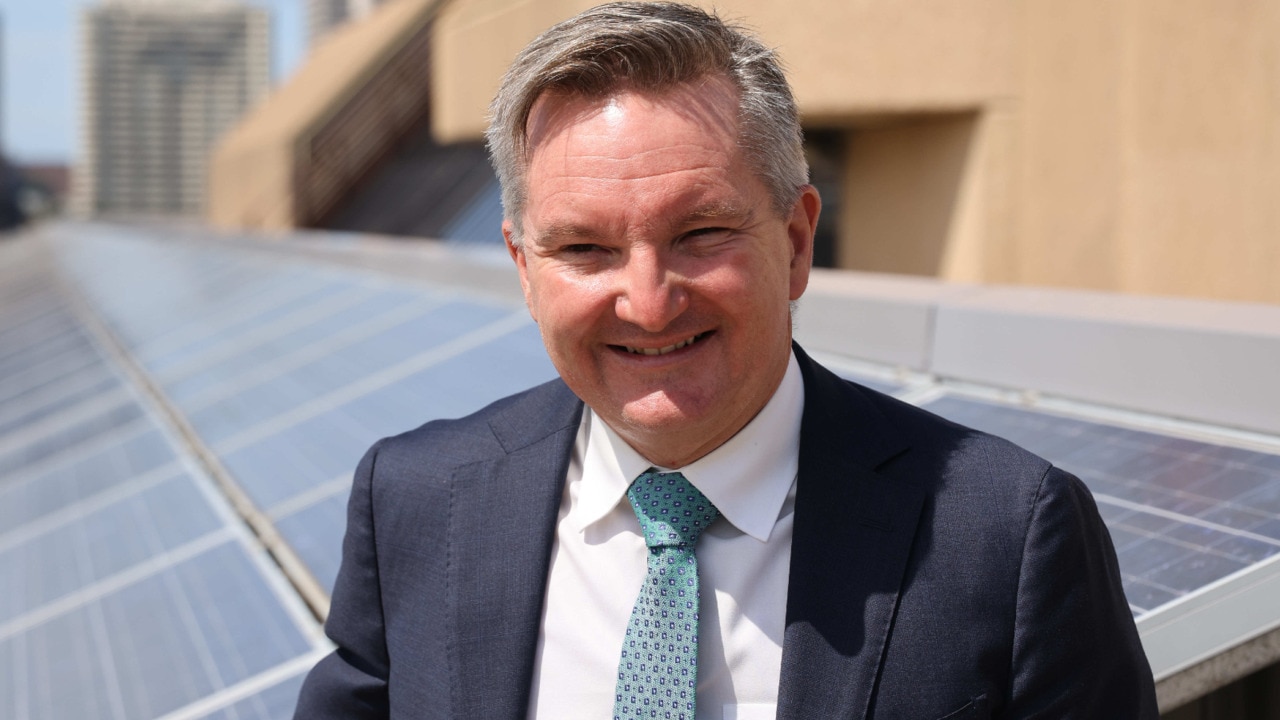
The text Mr Bowen put forward on behalf of his group is to agree “a rapid scaling-up of clean energy coupled with a global phase-out of unabated fossil fuels”. He had earlier said he wanted “a big step forward on the language on phasing out of fossil fuels” but warned “whether we get there or not, the coming days will tell. But it is important, and it sends an important symbol’’.
During Australia’s mission statement to the COP on Saturday, Mr Bowen referred to an agreed transition away from oil, coal and gas that was made with Pacific neighbours last month.
But that agreed transition is an “aspiration” and his referencing of the document was interpreted by others that Australia was not about to make any radical new demands in regards to fossil fuels.
Mr Bowen’s shifting sands of language at the COP allows for some strategic manoeuvrability, but also some domestic deniability upon his return to Australia.
All of the groups were called together by COP chairman Sultan al-Jaber on Sunday for “the Majlis”, what one delegate described as a “headbanging session” after it emerged only half of the issues had been resolved. This COP, the first to put fossil fuels specifically on the agenda, is meant to finish on Tuesday.
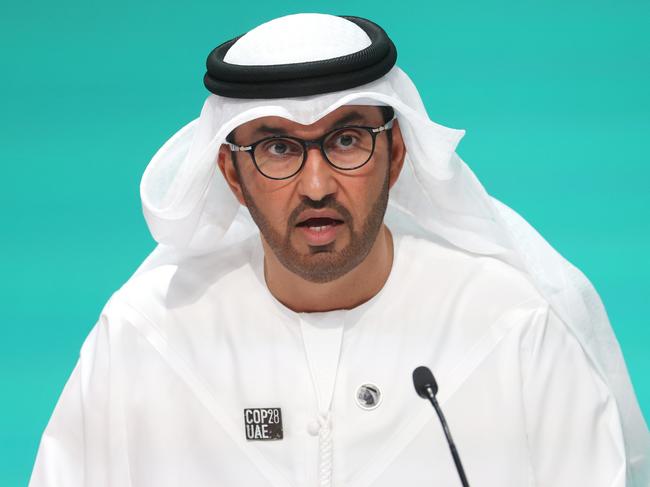
Australia is the third-largest exporter of fossil fuels and has significant oil and gas expansions in the pipeline.
OPEC countries such as Saudi Arabia, Iran, Iraq and Nigeria, as well as supporters such as Russia and Mexico, have been trying to make the distinction between oil and gas supply and the emissions. They also want the debate framed around other COP pledges such as tripling of renewables and doubling of energy efficiency by 2030. OPEC secretary-general Haitham al-Ghais wrote to member countries urging them to “reject any text or formula that targets energy, ie fossil fuels, rather than emissions”.
The issue of abatement is contentious because there is no clear definition of the degrees of abatement required to satisfy the COP.
A “high ambition” coalition of countries – headed by the Marshall Islands and other vulnerable nations but including others such as France, and Pacific neighbours such as Fiji – has warned for months that abatement technologies’ role in the decarbonisation of energy is “minimal” and shouldn’t be used to green-light fossil fuel expansion.
Climate think tank Carbon Brief says carbon capture and storage facilities around the world capture one-10th of 1 per cent of global CO2 emissions.


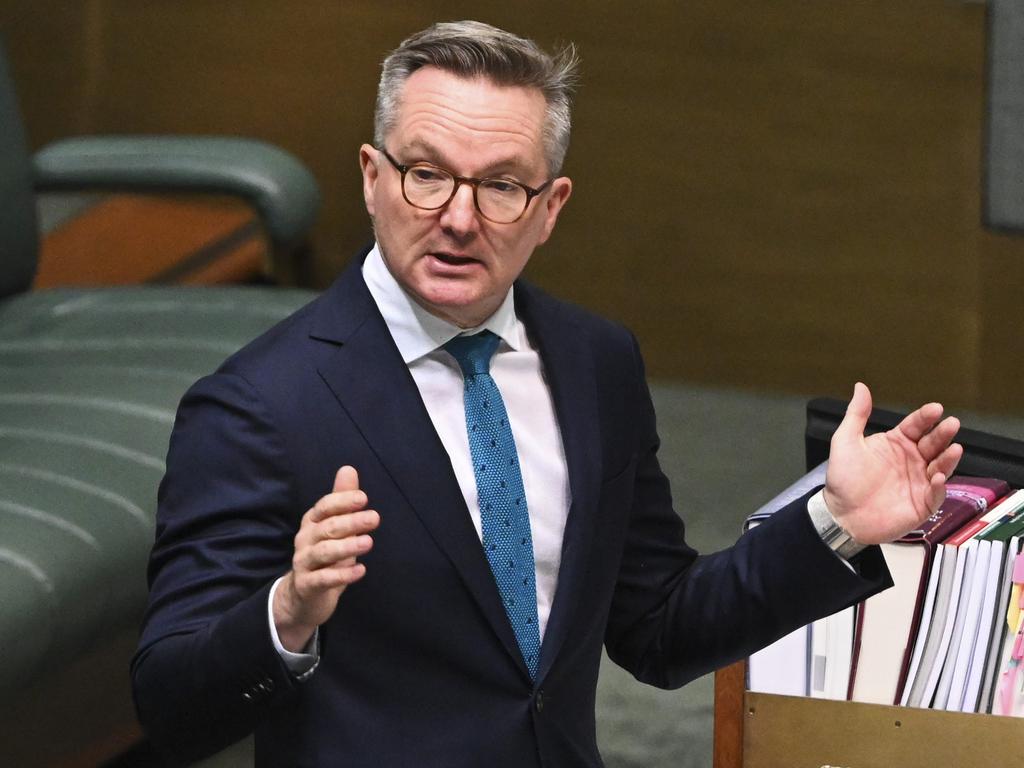





To join the conversation, please log in. Don't have an account? Register
Join the conversation, you are commenting as Logout